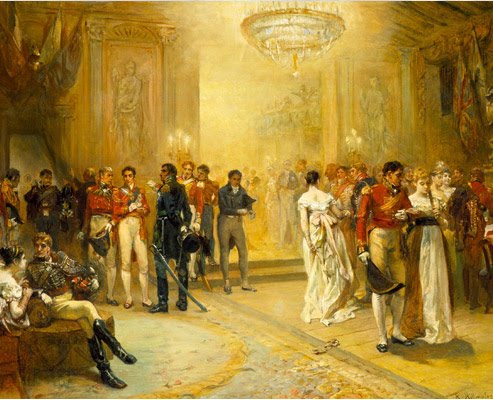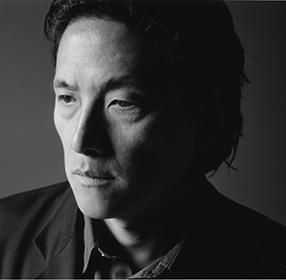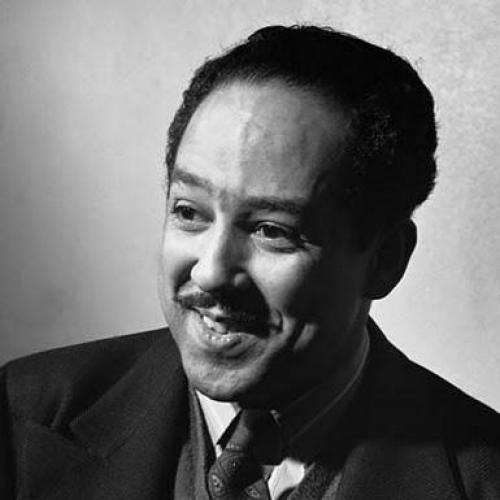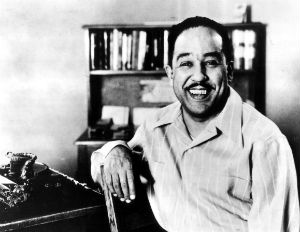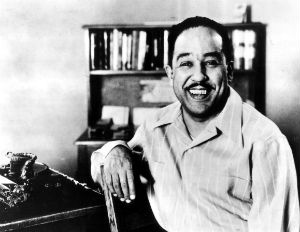About Langston Hughes:
James Mercer Langston Hughes was born in the year 1902 in Joplin, Missouri. He went on to become a poet, social activist, novelist and playwright. He started writing short stories and poems while in high school. He is known for ‘jazz poetry’ and is considered one of its earliest innovators. He is also known for his insightful portrayals of black life in America. But he is best known as the leader of the Harlem Renaissance, a rebirth of the African-American arts. This renaissance spanned form 1918 to 1930s. He is the receiver of many honors and awards including the Spingarn medal and an honorary doctorate from Howard University. An inspiration to many, Hughes died in the year 1967 due to complications from a surgery related to prostate cancer.
About ‘The Negro Speaks of Rivers’:
Hughes had just graduated from his high school when he wrote this poem. He was on a train journey with his father, when a view outside his window showed him the Mississippi River, and inspired him to write this piece of poetry. It was published a year later and since then, came to be known as the voice of the black community at that time of inequality. It is one of his most famous works. Hughes later dedicated this poem to W.E.B. DuBois, a civil rights activist.
Setting of The Negro Speaks of Rivers:
The poem is set throughout time. It begins at the dawn of earth and the flow of the Euphrates River in Western Asia. The poem then moves to the Congo River in central Africa. It then moves to river Nile in Egypt. Finally it comes to the river Mississippi in North America. Overall, the setting is beside rivers.
Poetic Devices in The Negro Speaks of Rivers:
Imagery:
There is imagery in the third paragraph of the poem. In the first line, we see a person bathing in the blue river with a rising sun in the background. In the second, we hear the river rush past as we lay down beside it. In the third, we see the pyramids, stones stacking upon one another, to form the wonder we know it is today. From the fourth line, we can imagine a man riding the Mississippi and we can see the muddy river turn golden with the sun setting behind it. The imagery is vivid and concise.
Metaphor:
One knowledgeable of mankind’s origins and progress through time will find the third paragraph full of metaphors. For example, near Euphrates River is Mesopotamia, said to be the cradle of civilization. All rivers are a metaphor of some event in the history of mankind.
Enjambment:
The first paragraph’s second line and the third paragraph’s fourth lines see enjambment. The lines of verse continue from one line in to another.
Hyperbole:
The speaker says he lived since the dawn of mankind. That is thousands of years. This is clearly an exaggeration, though it serves the purpose of showing the flow of time regarding to mankind.
Personification:
The Mississippi River is said to be singing to the speaker. It is given the human characteristic of speech. Again, it is said that its muddy ‘bosom’ turns golden indicating personification.
Repetition:
‘I’ve known rivers’ is repeated in the first and fourth paragraphs and the second and fifth paragraphs are the same.
Style of The Negro Speaks of Rivers:
The poem doesn’t have a rhyme or rhythm. It doesn’t have specific stress rhythm or any metrics. It is written totally in free verse.
Summary of The Negro Speaks of Rivers:
The speaker of this poem says that he knew many rivers. He knew rivers as ancient as the world, rivers which are older than human’s blood. Knowing them, his soul has grown deep, just like the rivers.
The speaker says he bathed in the river Euphrates when the earth was still young. He built a hut near the river Congo. The sound of the river flowing by put him to sleep at nights. He was there when the pyramids were being built beside the river Nile and he actually helped in raising them. He heard Mississippi sing, at the time when Abraham Lincoln travelled down it to New Orleans. He watched the river turn from muddy to golden in the sunset.
The speaker ends the poem by repeating he knew rivers, ancient, dusky rivers. And by knowing them, his soul grew deep like the rivers.
Analysis of The Negro Speaks of Rivers:
In line 2 of paragraph 1 the speaker says he’s been observing before blood flowed in human veins. He means that he was observing the world since before mankind originated.
He saw the rivers and as he continued to see them, his soul grew in depth. His soul became as deep as the rivers. It means that while seeing the rivers his mind gained a deeper understanding of nature and himself.
The Euphrates River is historically important. Near it is the city of Mesopotamia, where the first complex urban structures grew. The speaker says he bathed in this water. He means to say he was there when mankind first organized itself. The Congo River flows in Africa. Africa is said to be the birthplace of mankind. The speaker says he slept by this river, meaning he was there when mankind first originated.
Then he speaks of Nile and the pyramids. Pyramids are a symbol of mankind’s accomplishment and perseverance. But they also stand for slavery, seeing as how thousands of people were made slaves for its completion. The speaker says he was there when slavery raised its head.
Then the speaker speaks of the voyage of Abe Lincoln, the president of America and how he was there when he (Lincoln) travelled down Mississippi River to New Orleans. New Orleans was the largest slave center in America at the time. It was the first time Abraham Lincoln saw the horror and cruelty the slaves were subjected to. Lincoln later goes onto abolish slavery by leading the United States through its Civil War. This is indicated beautifully by saying how the water of Mississippi turned from muddy to golden, indicating the abolishment of slavery.
The speaker ends the poem by repeating how he knows rivers and how his soul grew deeper knowing them.
Central Idea of The Negro Speaks of Rivers:
The poet is an African-American. It is safe to assume the speaker of the poem is too. The poem reminds the African-Americans of their cultural and historical heritage. In the beginning mankind was one. The African-Americans were not discriminated against. In fact, mankind originated from Africa. But as time passed, they were made into slaves, subjected to inequality and injustice; so much so that some forgot their heritage. This poem reminds them of that and tells them to have hope as once again, someday, everything would ‘golden’ again.
Tone of The Negro Speaks of Rivers:
The tone of the poem is one of reflection. The speaker reflects upon his history and of mankind’s.
Conclusion
Langston Hughes uses beautiful imagery and metaphors to say that the African-Americans have been there for a long time and they too have a long history of culture. He reminds people that the injustice and inequality they were facing will someday be gone. The poem is deep and the amount he says without saying it explicitly makes this poem out of the ordinary.
Contributor: Uttej Reddy
Some online learning platforms provide certifications, while others are designed to simply grow your skills in your personal and professional life. Including Masterclass and Coursera, here are our recommendations for the best online learning platforms you can sign up for today.
The 7 Best Online Learning Platforms of 2022
- Best Overall: Coursera
- Best for Niche Topics: Udemy
- Best for Creative Fields: Skillshare
- Best for Celebrity Lessons: MasterClass
- Best for STEM: EdX
- Best for Career Building: Udacity
- Best for Data Learning: Pluralsight


